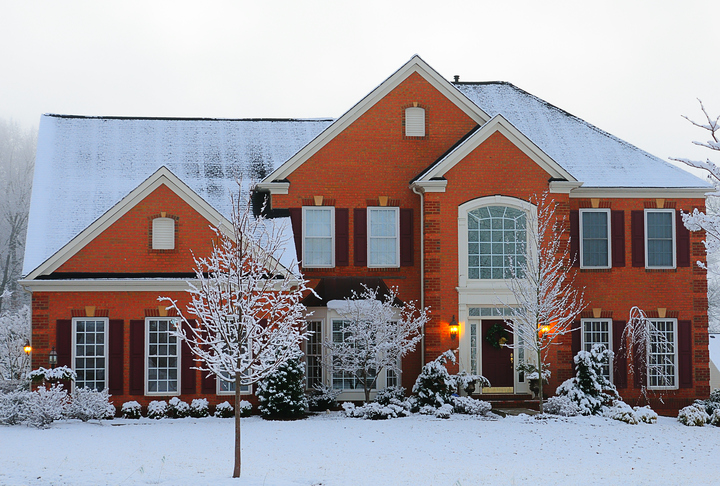Winterize Your House

Is cold weather on the horizon? Take time now to prepare for the effects that winter weather can have on your house. From cleaning the chimney flu to draining outdoor sprinkler systems, we’ll highlight some of the steps you may want to take to avoid costly cold weather-related repairs.
- Inspect the plumbing in your house. You should ideally do this several times throughout the year, but definitely before the cold winter weather has time to wreak havoc on your plumbing system. At a minimum, you should drain all pipes that lead to outside connections, such as outdoor spigots and sprinkler systems. If your plumbing pipes are exposed in an unheated basement, consider insulating the pipes or wrapping them with heat tape. This could help prevent frozen pipes that could burst and cause considerable damage and lead to costly repairs. It is best to hire a professional plumber to make sure your system is in tip-top shape and that no possible exposures are overlooked.
- Clean your fireplace and flue. Cleaning these areas at least once a year helps keep creosote levels at a minimum, which reduces the risk of a flue fire. Creosote is an extremely flammable oil produced by coal or wood ash smoke that builds up on the inside of the chimney. A professional chimney cleaner can remove creosote and other types of build-up that may be harmful to your chimney and to your overall safety.
- Clean your furnace, heat pump, or other heating source. Heating professionals should inspect, clean, and repair your furnace, heat pump, or boiler at least once a year. Follow manufacturer suggestions for replacing heating system filters throughout the year to keep your system operating smoothly and efficiently.
- Insulate or prevent heat loss through windows and doors. Inspect both the inside and outside of all house windows and exterior doors to insure there is adequate caulk around trim, and that all weather stripping is intact. Installing plastic insulating sheets over windows may help reduce the amount of heated indoor air that escapes through cracks or window glass that has a low insulation factor. Repairing or adding weather stripping or caulking around window and exterior door trim may also reduce heat loss, which can help reduce heating costs. Consider hiring a professional contractor to inspect your home for areas where heat loss is prominent and to make needed repairs.
- Inspect attic insulation. Insufficient attic insulation or insulation that has been damaged by pests can be a source of heat loss. Due to the possible dangers of working with insulating material, it is advisable to contact an insulation professional to perform the inspection and make any necessary repairs to restore the insulation in your attic, or other areas of your house.
- Take an outside tour of your roof, but stay on the ground while doing so. Only trained professional roofers should tackle the job of scaling house roofs. While viewing your roof from the ground, look for signs of damage, such as loose or missing shingles, or dents or other damage to metal roofs. Contact a roofing professional to make necessary repairs.
- Clean your gutters. This should be done several times a year to keep water flowing away from your foundation. Clogged or debris-laden gutters may prevent adequate drainage, which can result in potential water-related damage to your house and roof (e.g., ice dams in the winter). Contact a professional gutter cleaner who is experienced in climbing and accessing gutters and downspouts on roofs, especially multi-level or steep roofs.